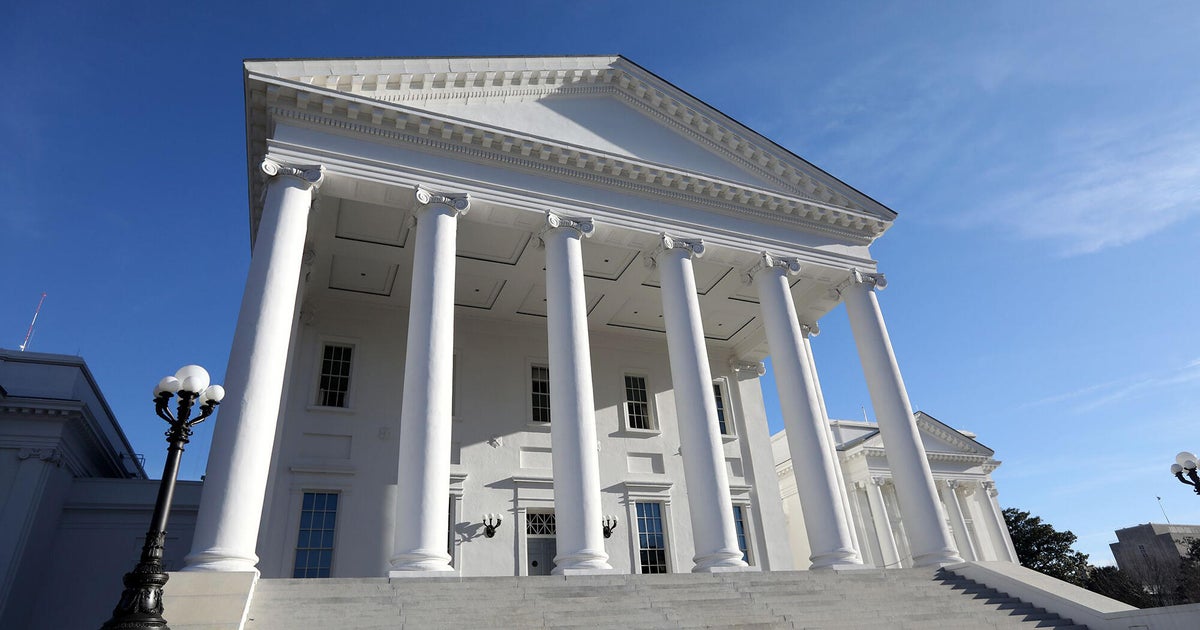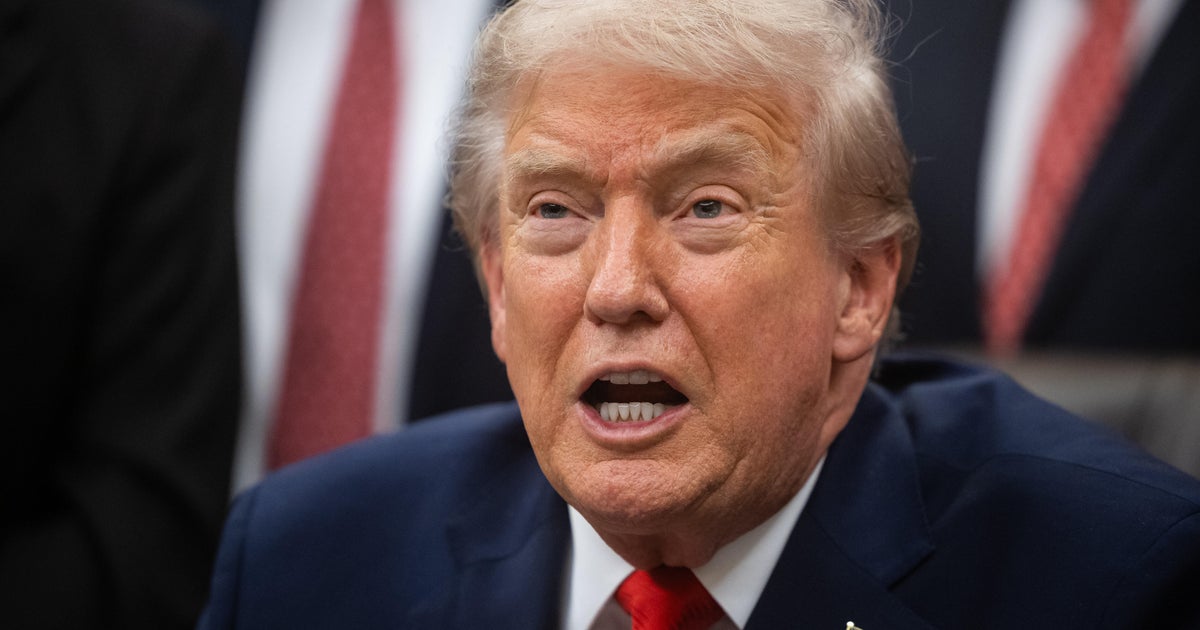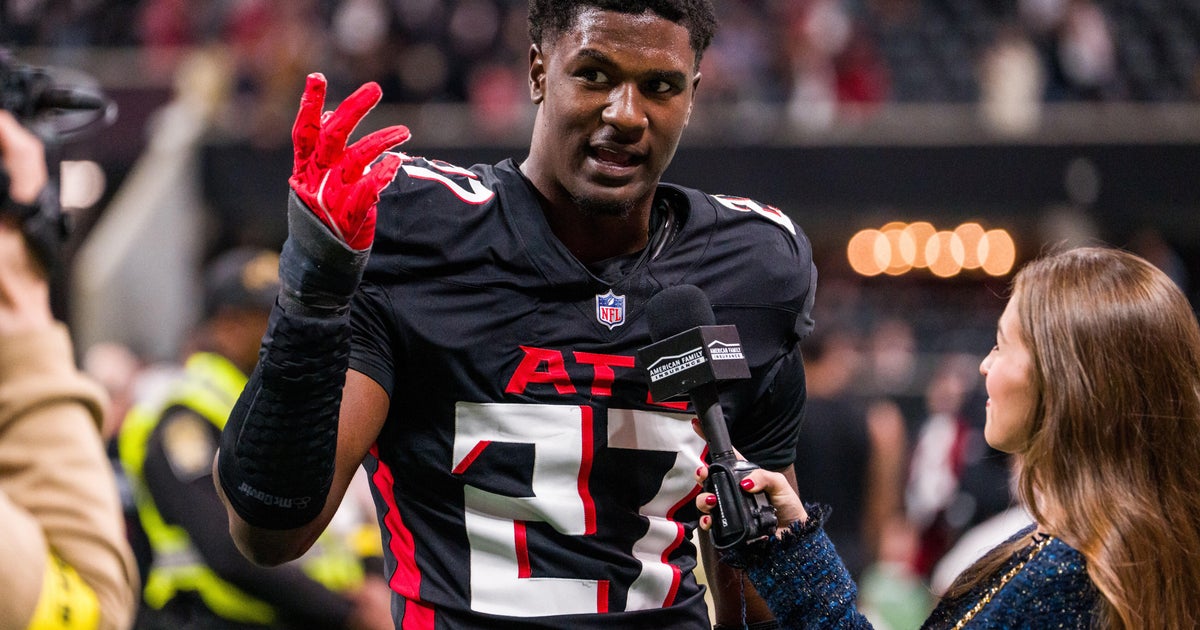Trump, GOP Rivals Stick Largely To Policy As They Square Off In Miami
MIAMI (CBSNewYork/AP)-- With Donald Trump well at the front of the pack, the Republican presidential candidates took to the stage in Miami Thursday night for another big debate.
Trump took on his three remaining opponents -- Sens. Marco Rubio and Ted Cruz, and Ohio Gov. John Kasich.
From the beginning, the debate was calmer and more policy-oriented than the one held in Detroit last week, where penis size was raised as a point of discussion at one point.
As CBS2's Jessica Schneider reported, Trump even expressed a sense of unity with the other candidates.
"We're all in this together. We're going to come up with solutions. We're going to find the answers to things, and so far I can't believe how civil it has been up here," Trump said.
Rubio opted not to attack Trump on immigration, despite recent news alleging his company denied pay to some foreign workers.
Cruz obliquely poked Trump for contributing to Democratic candidates in the past and not taking a position on Social Security reform, saying: ``I'll let Donald speak for himself.''
But there were still conflicts, particularly when Trump was asked about a comment he made earlier about Muslims.
"I think Islam hates us. There's something-- there's something there that-- there's a tremendous hatred there. There's a tremendous hatred. We have to get to the bottom of it. There is an unbelievable hatred of us," Trump told CNN's Anderson Cooper.
When asked at the debate about the remark and whether he meant all 1.6 billion Muslims, Trump said, "I mean a lot of them."
"There is something going on that you don't know about, and maybe a lot of other people don't know about, but there's a lot of hatred," Trump said.
But Rubio said there are Muslims around America, who are patriotic and serve in uniform, and he said Trump's comments are not appropriate.
"The problem is presidents can't just say anything they want," he said. "They have consequences here and around the world."
But Trump said being "politically correct" was what is not appropriate, repeating that there is "tremendous hatred" coming from Muslims, and "we'd better solve the problem in before it's too late."
Countering that, Rubio said, "I'm not interested in being politically correct, I'm interested in being correct."
Earlier in the evening, Kasich was the first to speak. Amid claims by Trump that he would renegotiate all the nation's trade deals, Kasich was asked about claims that he was catering to corporate boardrooms ahead of the middle class in backing such deals.
Kasich said he has a blue collar background and does not favor trade deals that take jobs and income away from Americans, but, "we don't want to lock the doors and pull down the blinds and leave the world," or prices will go up and the economy will be damaged.
But Trump insisted that he knows more about trade deals than anyone else running because he is a businessman, and could renegotiate them to prevent the U.S. from being taken advantage of.
"It's very, very hard for companies in this country – in our country – now to compete," he said.
Cruz also called for change in trade deals, including lifting regulations, eliminating taxes on exports while only taxing imports.
The candidates also discussed whether Trump's call for a pause on green cards issued to foreign workers would help workers in the U.S. Trump said the H1-B guest worker bill is "very, very bad for workers," and for business.
Cruz called for redefining the legal immigration system so it works better for the economy, saying too many low-skilled workers are being allowed into the country at the expense of American workers.
Cruz also said the government should end sanctuary cities, "cut off federal taxpayer funds to any city that defies immigration laws."
"The Democrats support illegal immigration because they view those illegal immigrants as potential voters," Cruz said, but he added that the Republicans are largely too tied up with Wall Street and see illegal immigrants as cheap labor.
The candidates also discussed how to prevent Social Security from running out of money within 20 years.
Also addressed was the issue of diplomatic relations with Cuba. Trump deflected the questions over whether he would maintain the Obama administration's pursuit of normalized relations toward that country.
He said he thinks he is ``somewhere in the middle'' of Obama and Rubio's views, the latter of whom opposes normalized relations with the communist island nation.
Trump said he'd pursue ``a good deal,'' but stops short of naming the terms he would support.
Rubio, who is the son of Cuban immigrants, said he would require Cuba to commit to specific terms in order to normalize relations.
The terms include free elections, free press, and to stop throwing dissidents in jail.
His comments aroused huge cheers from the Miami audience, which is home to a significant Cuban-American population.
And on the issue of climate change, Rubio said the climate as "always been changing" and a law cannot be passed to "change the weather."
But Kasich called for a strong environmental policy along with strong economic growth.
"They are not inconsistent with one another," Kasich said.
Meanwhile, questions have arisen as to whether the Republican National Convention may be brokered, and Trump may not win the nomination even if he gets the majority of delegates. Trump said the candidate with the greatest number of delegates – even if it is not he – should get the nomination.
"If Marco, if the governor (Kasich), if Ted had more votes than me in the form of delegates, I think that whoever gets that position" should be the nominee, Trump said.
Trump and Cruz both agreed that they each had the potential to win enough delegates to receive the nomination, while Rubio and Kasich do not. But Cruz said Hillary Clinton is sure to win the general election if Trump is nominated, and claimed that the news media is playing up Trump's success with that agenda in mind.
Trump in turn said he could beat Clinton and added, "Believe me, I haven't even started on her yet."
Earlier, Republican Senator Mike Lee of Utah became first U.S. senator to endorse Ted Cruz, while retired neurosurgeon Ben Carson endorsed Trump less than a week after dropping out of the race himself.
The candidates were getting ready for what could be the decisive states in the primaries next week, CBS2's Dick Brennan reported.
But Rubio hoped the Republican debate Thursday night could offer one last chance to win his home state.
Rubio earlier acknowledged his recent "potty" humor after he made a remark toward Trump saying, "you know what they say about men with small hands."
"I'd do it differently, I really would. And the reason... my kids were embarrassed by it, my wife didn't like it, I don't think it reflects good. That's not who I am. That's not what my campaign is going to be about," Rubio told Fox News' Megyn Kelly.
The political stakes are high heading into the contests on Tuesday of next week – especially in Florida, where the winner takes all 99 delegates.
The most recent Washington Post poll showed Trump with 38 percent of the support in Florida, Rubio with 31 percent, Cruz with 19 percent, and Kasich with 4 percent.
On the Democratic side, after Wednesday night's tough debate the candidates were again on the trail. Hillary Clinton is already talking about her next opponent.
"People ask me all of the time, who do I want to run against? Well, that's not for me to decide. But given what they've all said, I will take any one of them," Clinton said.
But she has to beat Bernie Sanders, who pulled off an upset win in Michigan this week.
"On Tuesday, we've got five states coming up including Florida. If you guys come out to vote, we're going to pull off an upset here as well," Sanders said.
(TM and © Copyright 2016 CBS Radio Inc. and its relevant subsidiaries. CBS RADIO and EYE Logo TM and Copyright 2016 CBS Broadcasting Inc. Used under license. All Rights Reserved. This material may not be published, broadcast, rewritten, or redistributed. The Associated Press contributed to this report.)






